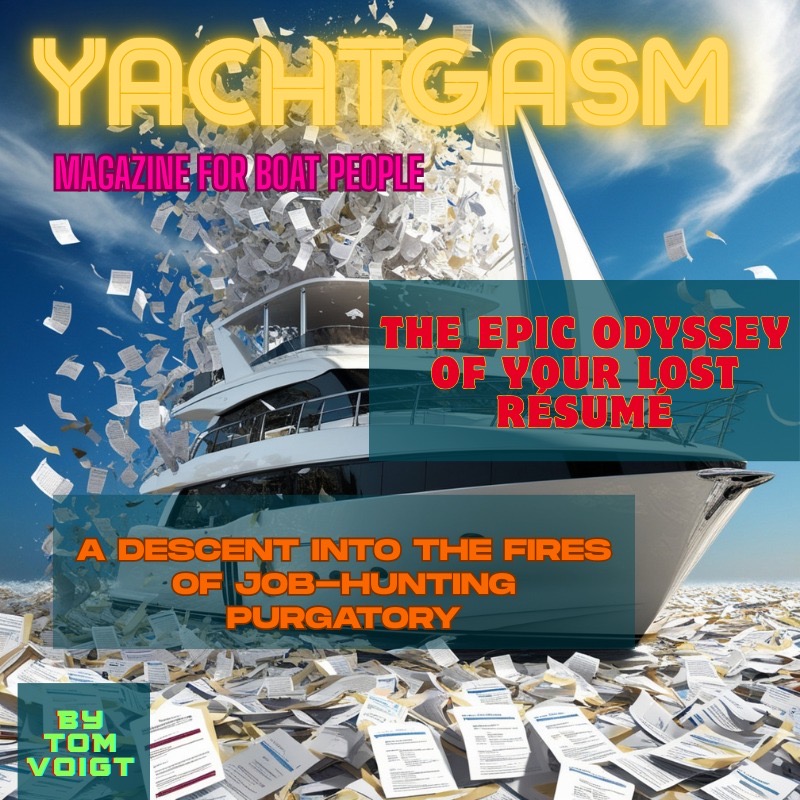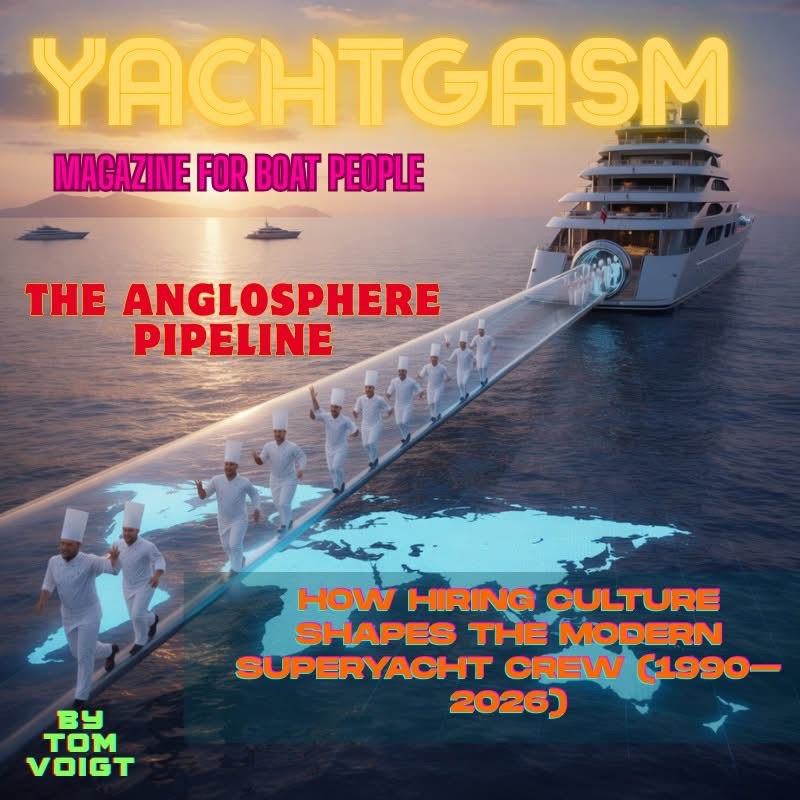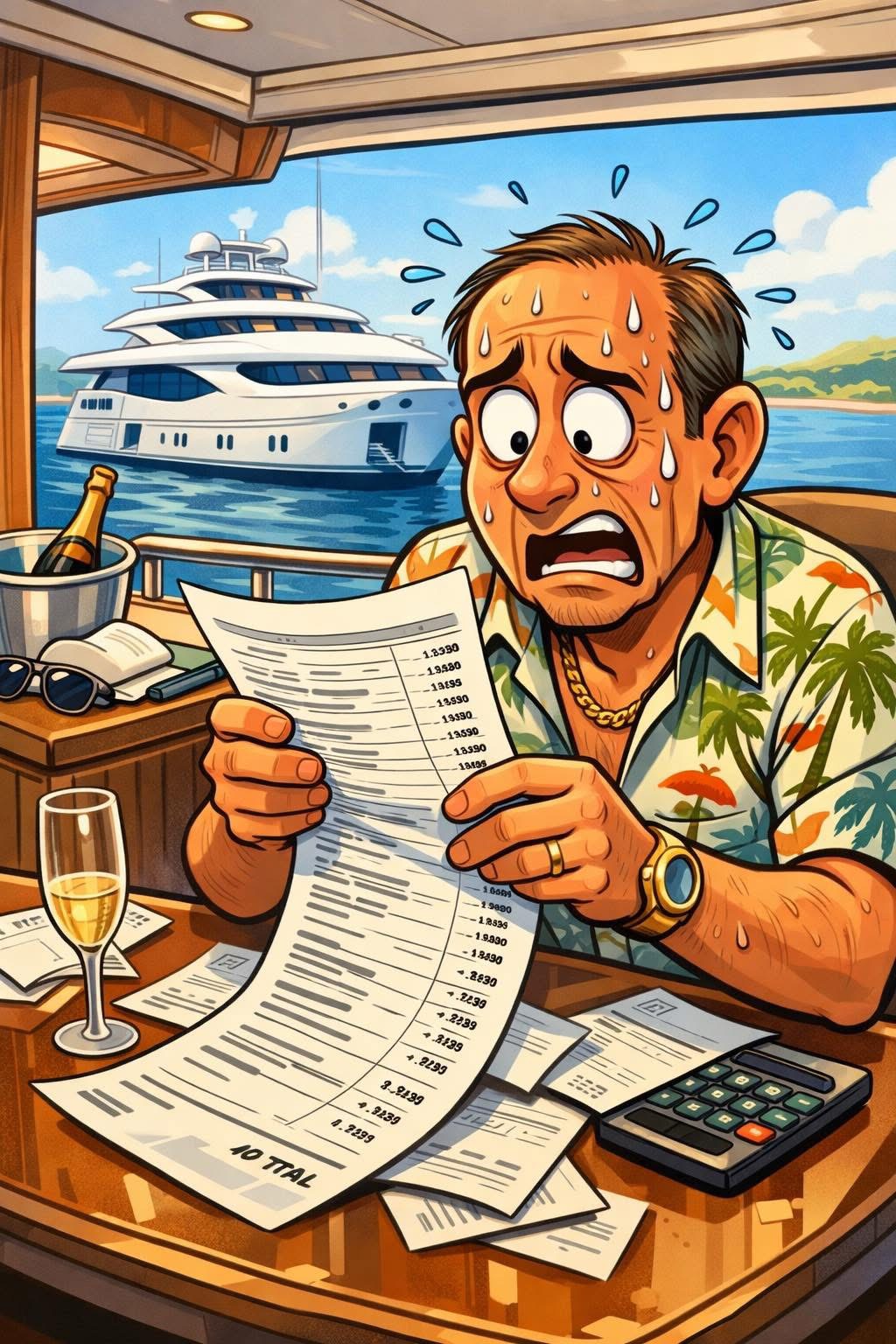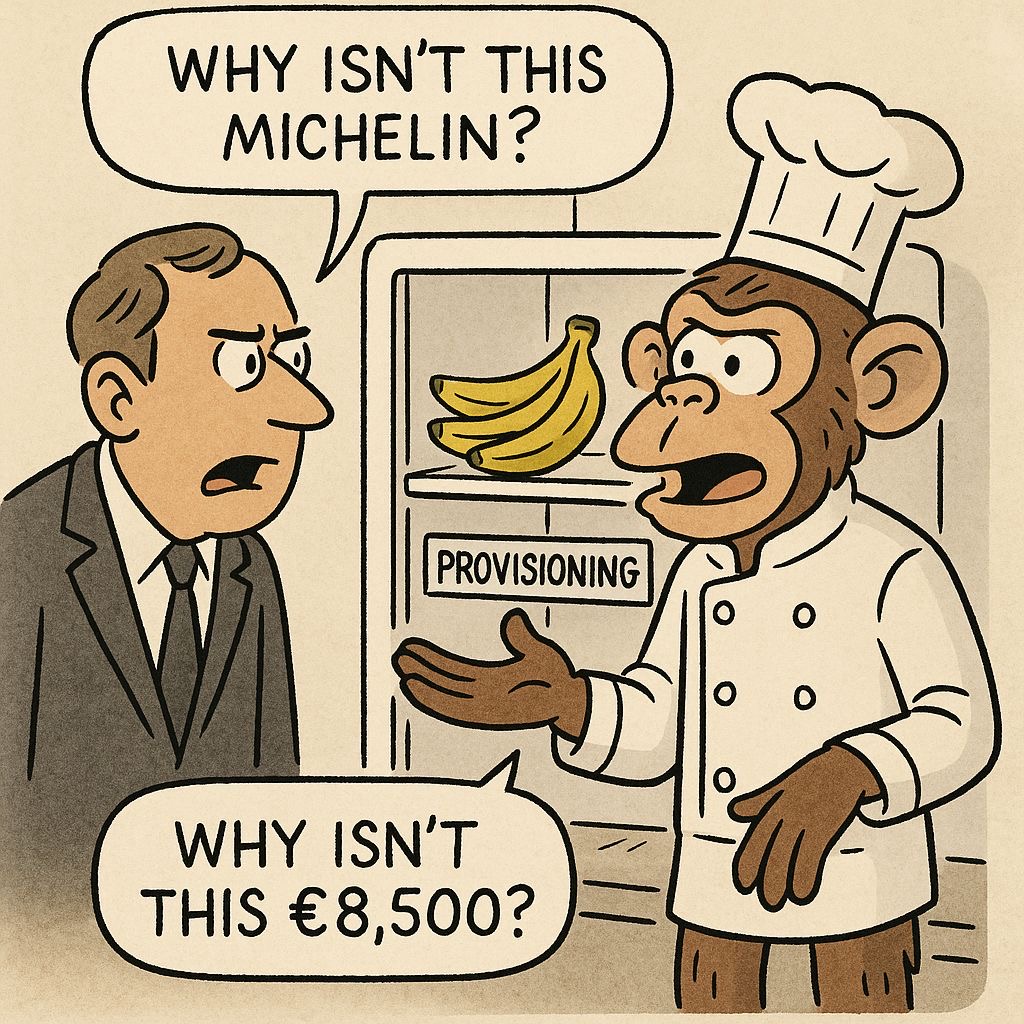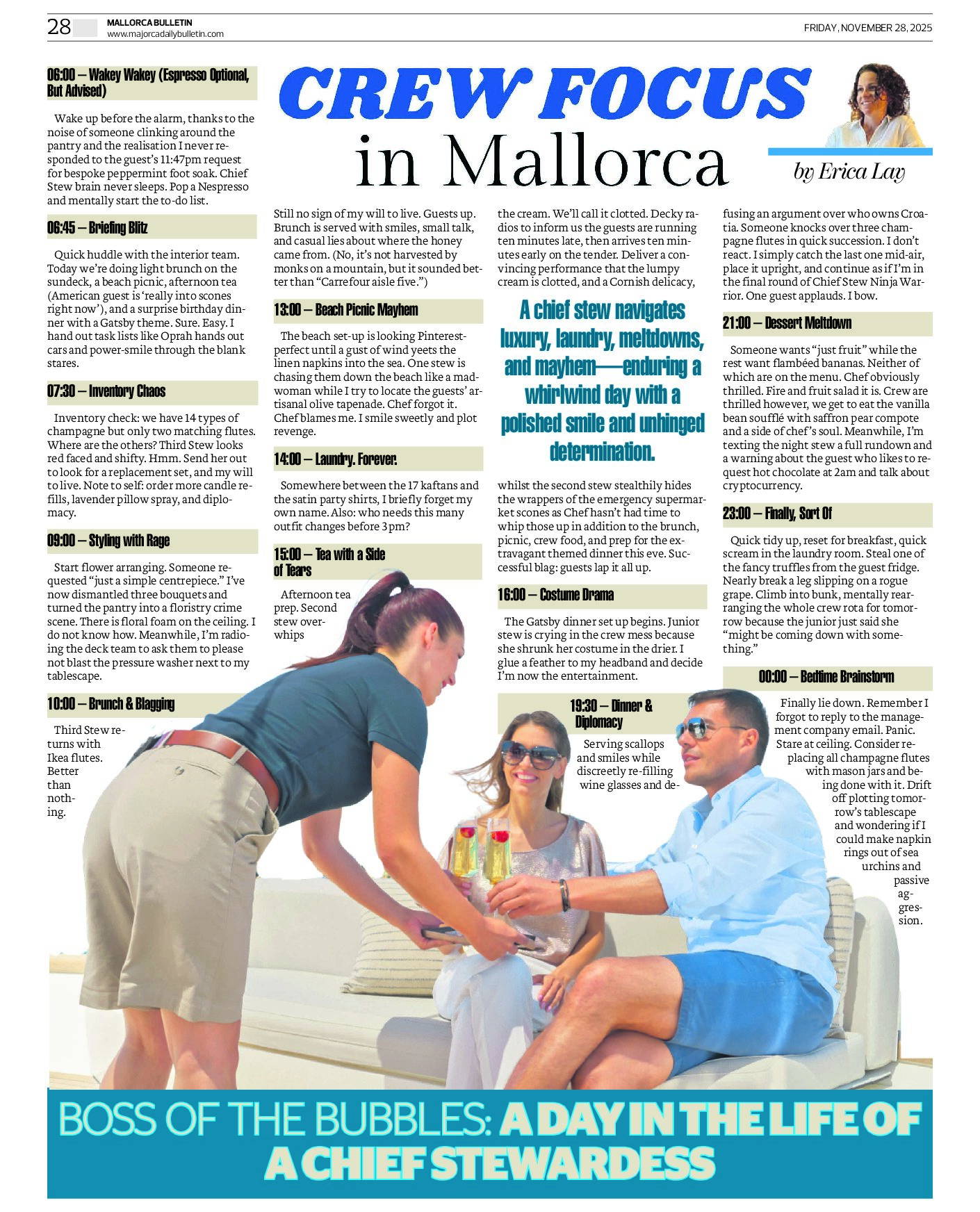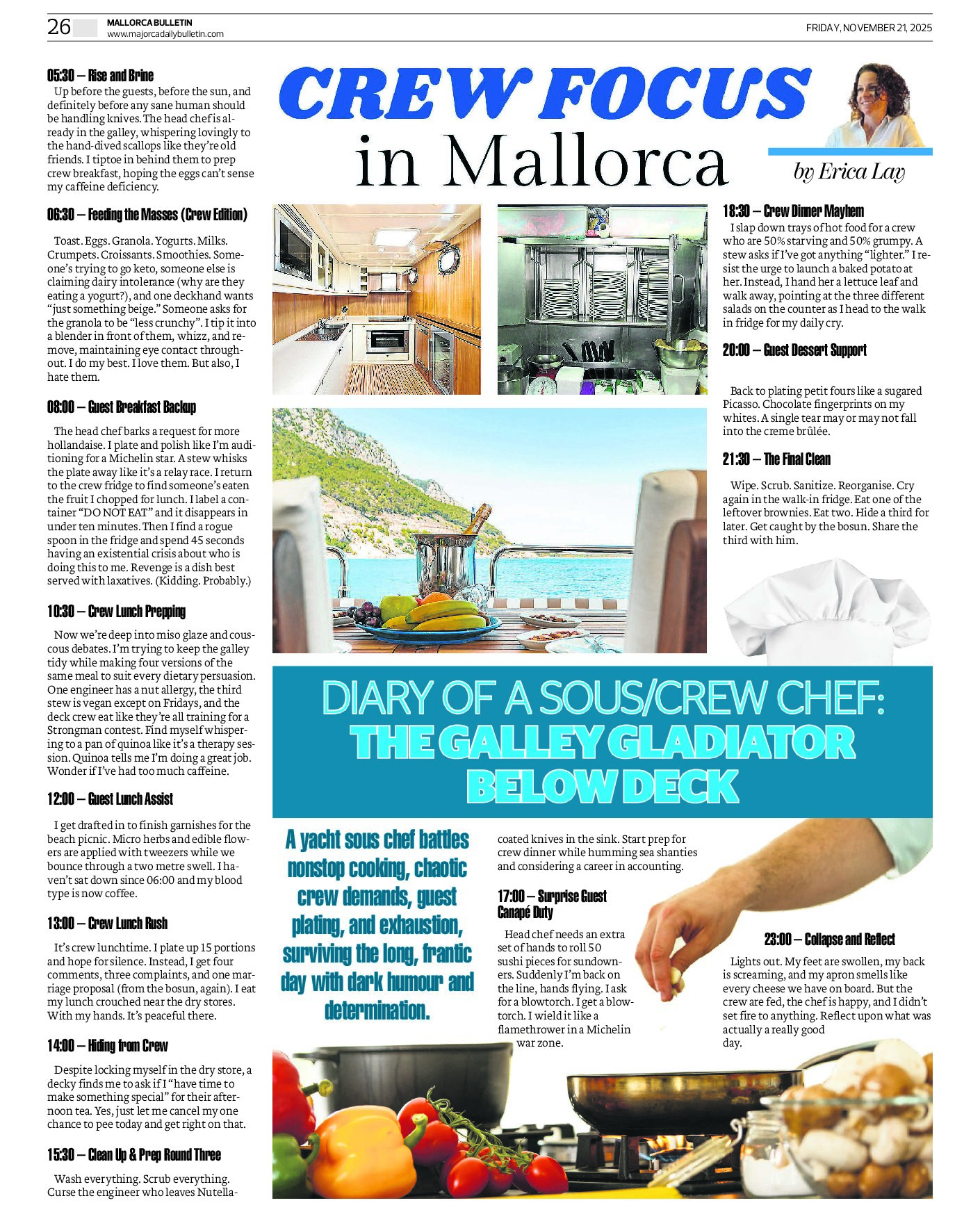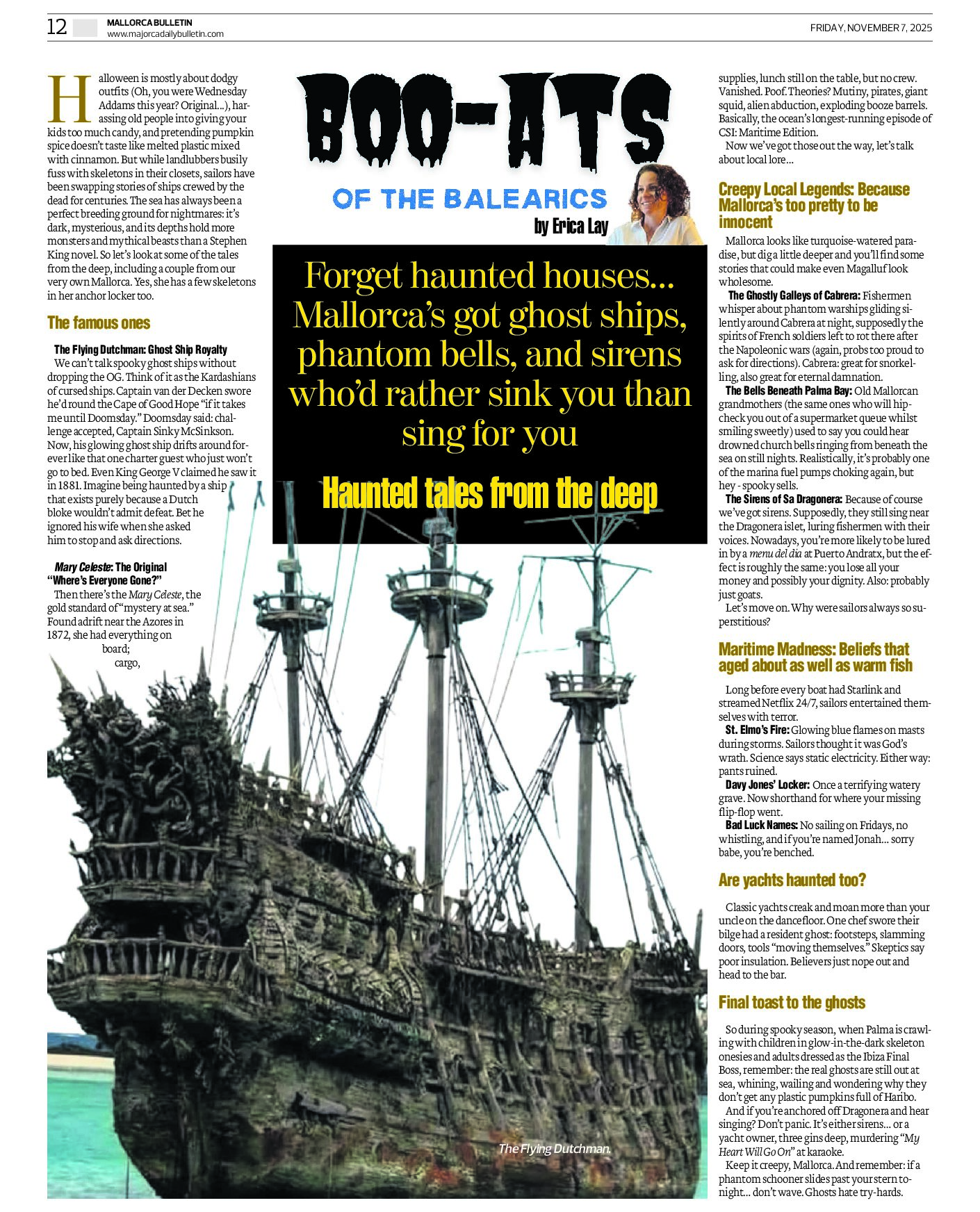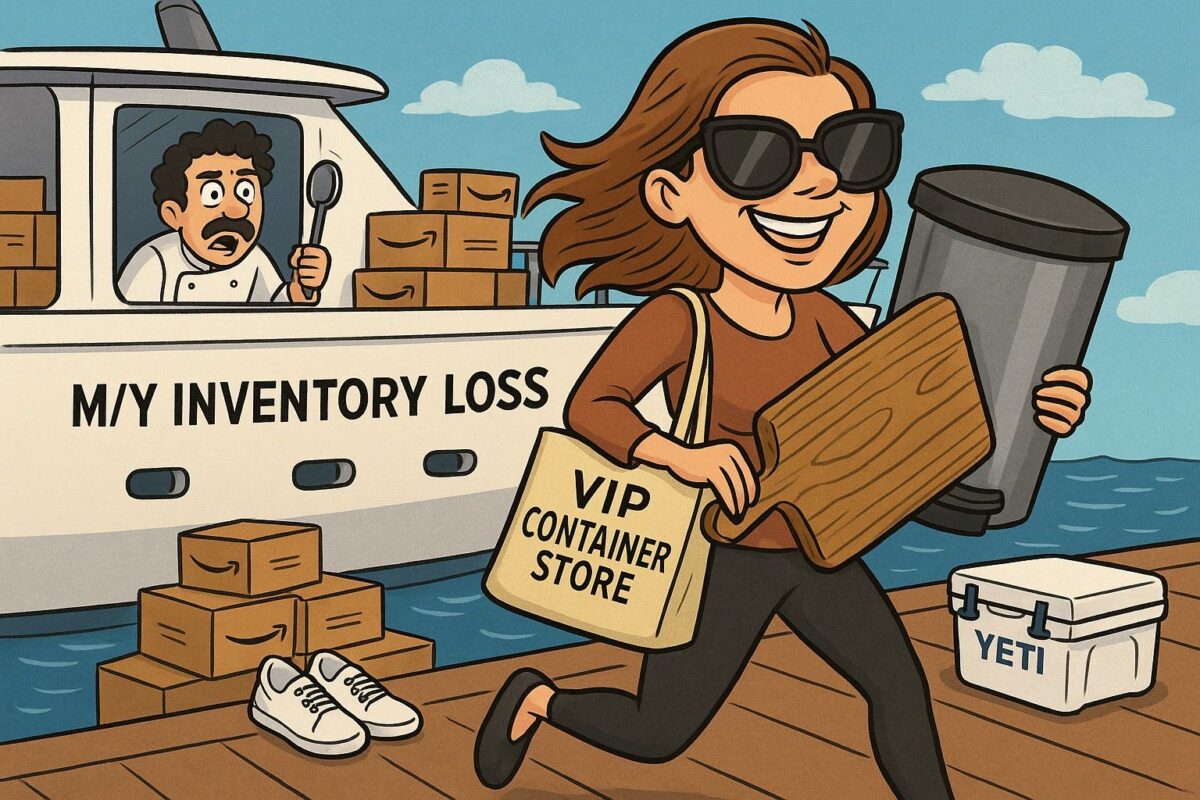What Will Yacht Life Look Like in 2036?
With Courtesy of Erica Lay & The Mallorca Bulletin. #26/0024 Erica Lay is owner of EL CREW International Yacht Crew.
What Will Yacht Life Look Like in 2036?
By Erica Lay, owner of EL CREW CO Superyacht Recruitment agency and author of Superyacht Life: How to Start, Succeed, & Stay Sane – available now on Amazon.
If you think yachting has changed a lot between 2006 and 2026, buckle up. The next decade is shaping up to be a wild blend of high-tech wizardry, eco-conscious living, and guest expectations so niche they’ll make today’s preference sheets look like cave paintings.
So let’s jump ahead and imagine a typical day aboard a superyacht in 2036 – part prediction, part educated guess, part fever dream inspired by too many hours this past week in STP.
Silent tenders… that refuse to disturb wildlife
In 2036, tenders won’t growl. They won’t roar. They won’t even politely hum. They’ll glide. Total silence. They’ll be so quiet dolphins won’t realise you’re there until they bump into you and ask for snacks.
And because environmental regulations will be even tighter, tenders might be fitted with “eco-alerts” – gentle bird-like chimes reminding the driver to slow down in sensitive areas. Think of it like a reverse parking sensor, but for seagrass.
Floating solar wings that deploy like origami
By 2036, yachts will sport solar wings that fold out at anchor like some kind of luxurious butterfly. The whole top deck will unfurl into a shimmering array of ultra-thin panels, harvesting so much energy the crew will spend the afternoon bragging to each other about kilowatt hours.
They’ll retract automatically when the wind picks up, which means you can expect to hear a lot of: “Engineer to Bridge, we’ve lost Wing Two again…”
AI butlers… and yes, they’ll have personalities
Forget voice assistants that can barely hear you over the AC. In 2036, every yacht will have an AI butler that remembers your guests’ favourite drinks, their sleeping patterns, and whether they’re the type who thinks fennel is an insult.
Some yachts will let the owner choose the AI’s “personality package.” Options may include:
• British Estate Manager – calm, soothing, slightly passive aggressive.
• Hollywood Agent – tells you everything is “amazing” even if the stabilisers are on strike.
• Mediterranean Auntie – feeds you constantly and is openly suspicious of anybody who asks for gluten-free anything.
Engineers will pretend to hate the AI but secretly ask it for diagnostics help during night watches.
Cabins that adjust themselves
Guests won’t fiddle with switches. Their cabins will learn them.
Temperature, lighting, mattress firmness, even the shower pressure will all adjust automatically based on biometric cues. If a guest gets out of bed at 3 a.m. for a glass of water, the lights will softly glow at “barefoot-stumble-safe” intensity.
Interior crew will pretend they hate the automation, while privately enjoying the fact that nobody is asking them to “make the lights a tiny bit more sunsetty.”
Hyper-personalised food systems
The 2036 galley will resemble a Michelin kitchen crossed with a lab. Chefs will have AI nutrition assistants mapping each guest’s metabolism in real time.
A typical preference sheet might say: “I prefer meals optimised for my sleep cycle, featuring proteins that support cognitive clarity, using ingredients that were grown within a 50km radius and have been spiritually blessed.”
Chefs will nod politely and go cry into the sourdough starter.
Drone everything
Drones will be standard equipment. They’ll do:
• grocery drops
• line inspections
• hull scans
• wildlife monitoring
• aerial cinematography
• “guest locator” runs when someone wanders off during a beach picnic
Deck crew will manage them with the weary confidence of people who used to deal with inflatable climbing walls.
Anchorages that book themselves
By 2036, some regions will require digital mooring reservations. Yachts will ping ahead, AI will calculate optimal positions, and the system will assign you a buoy that minimises seagrass disturbance.
Of course, there will still be that one yacht that ignores the rules and drags through a protected zone. Social media willsend alerts to authorities within minutes and fines will be swift.
Crew uniforms that actually do things
Imagine uniforms with cooling fibres, UV protection, built-in hydration reminders, and anti-stink tech that keeps the deck team from smelling like the inside of a wetsuit after day three of toy madness.
In 2036, that might be normal.
And the big one: semi-autonomous yachts
We’re not talking “captain in a deckchair while the yacht does donuts.” We’re talking:
• self-docking with human oversight
• collision-avoidance that actually works
• route optimisation
• automated night monitoring
• system self-diagnostics
• stabilisation that reads the sea like an oracle
Captains will still be in charge – but the yacht will have opinions.
So… what will 2036 yacht life really feel like?
Cleaner. Quieter. Smarter. More personalised. More eco-friendly. And yes – a little bit weird in places.
There’ll be more tech helping crew, more data keeping guests happy, and more automation quietly smoothing out the chaos behind the scenes.
But at its core, it’ll still be the same: people chasing sunshine, saltwater, good food, and that first perfect morning coffee on deck.
Only now their drone will film it.

